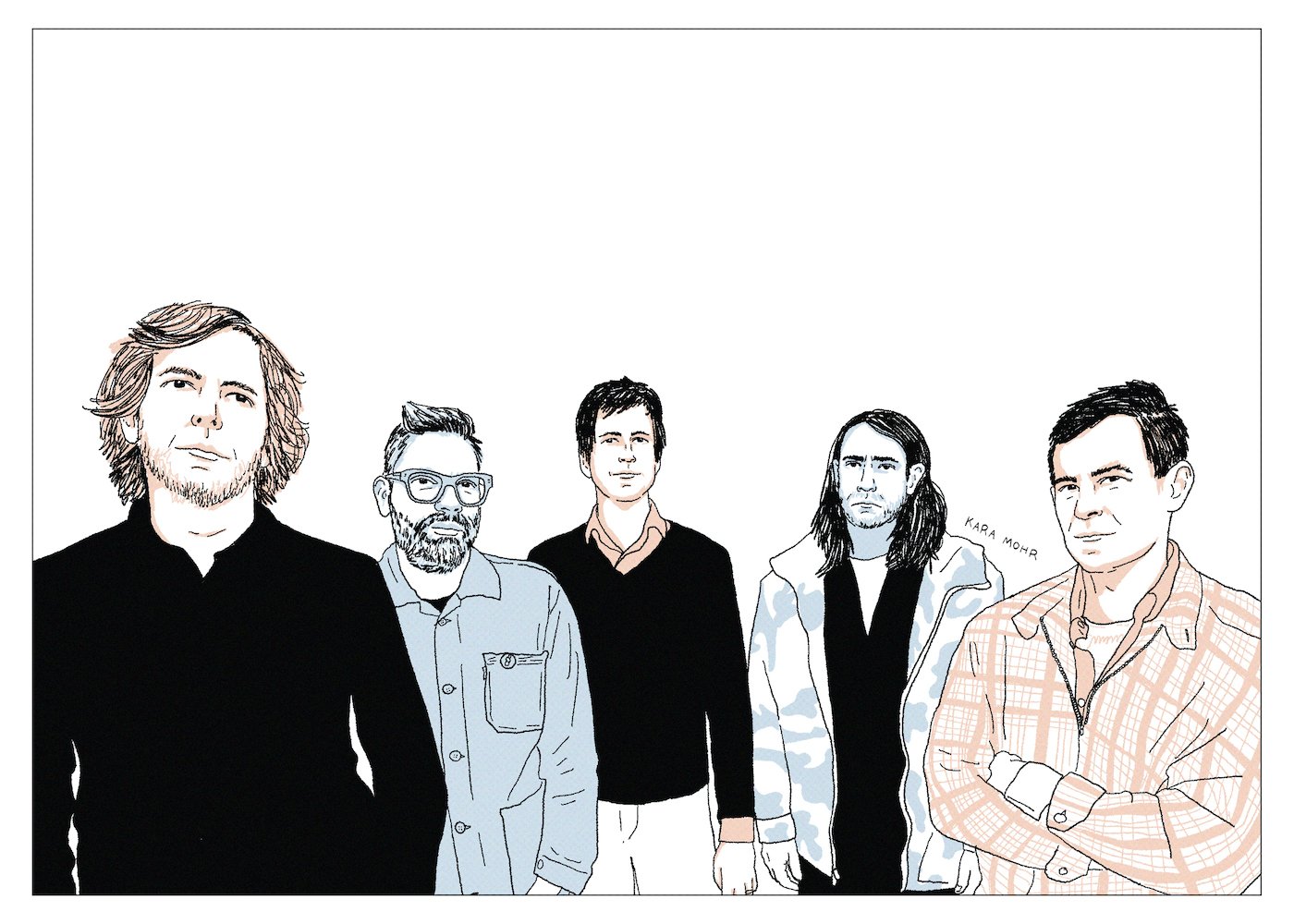
The American Analog Set “For Forever”
Though they broke up in 2008, The American Analog Set started hanging out again in 2013. They’d meet up weekly and play music for the purest of reasons — because they enjoyed being together. It was familiar and comfortable. But in no way did their weekly jams sound like a reunion or even a precursor to a reunion. On the other hand, it did beg the question: If a band plays in a living room for no one but themselves, are they even a band? If a tree falls in a forest, does it make a sound? In truth, nobody knew about these private get togethers and so nobody was asking. But then, a year or so ago, the fading flicker made a pop. Numero Group announced plans to reissue the first three Analog Set albums. A lost track came to light. And then, seemingly out of nowhere, The American Analog Set, who were always as much a dream and a mystery as they were a band, revealed “For Forever,” their first album in eighteen years.
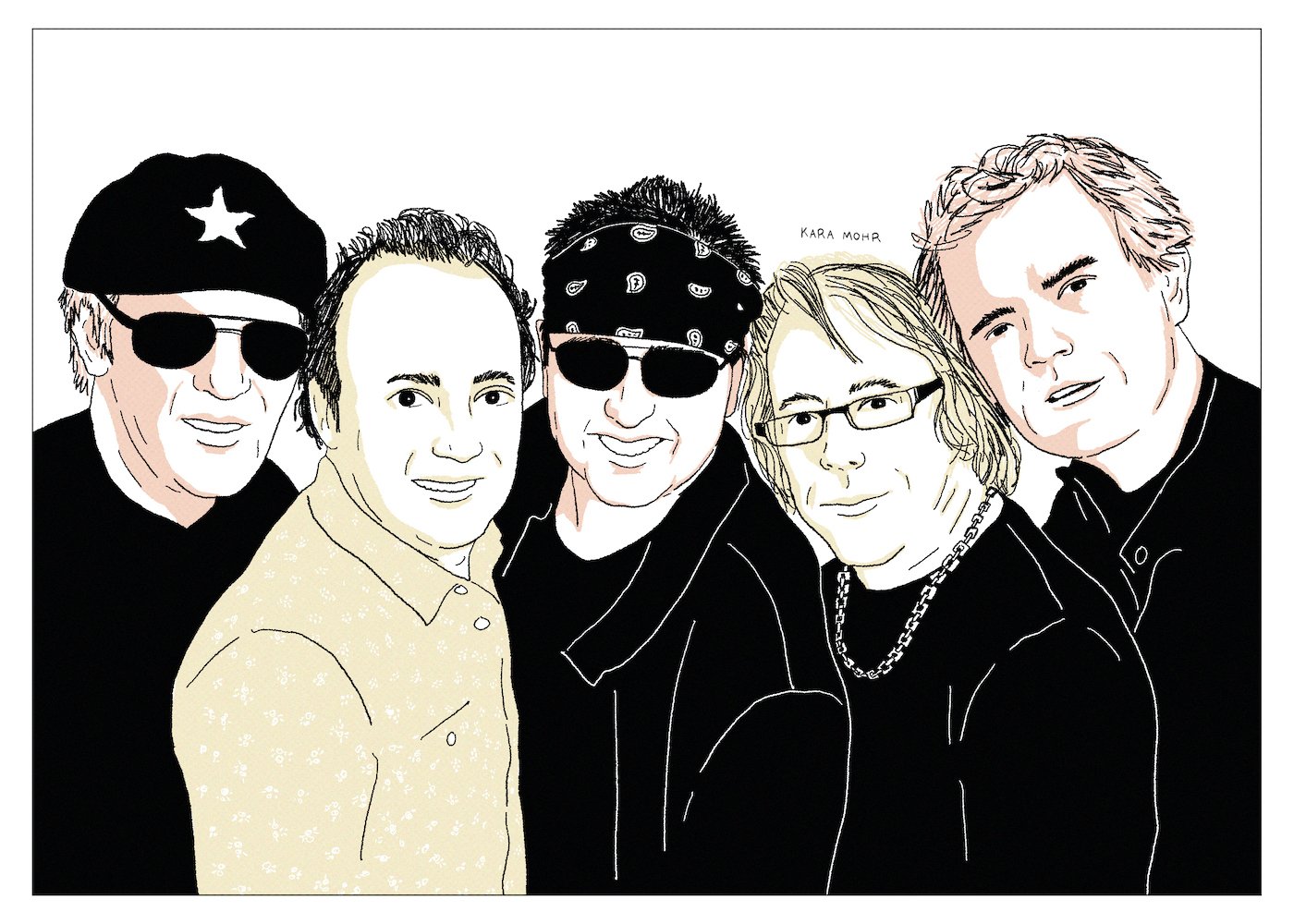
Loverboy “Unfinished Business”
Peak Loverboy is the sound of producer, Bruce Fairbairn, and engineer, Bob Rock. So is peak Bon Jovi. So is second peak Aerosmith and fourth peak AC/DC. It’s a big sound — heavy but not pummeling, bombastic but not ridiculous. It’s also a clean sound — every instrument has its place. It was their knob turning that made Bon Jovi sound like making out, Def Leppard sound like getting off and Loverboy like dry humping. As good as Loverboy was, their brief and unfathomable greatness was really that of their producer and engineer. A quarter century after their heyday, though, without Fairbairn or Rock, Calgary’s finest Arena Rock band returned one more time, as though to prove to Bon Jovi and Def Leppard who really came first.
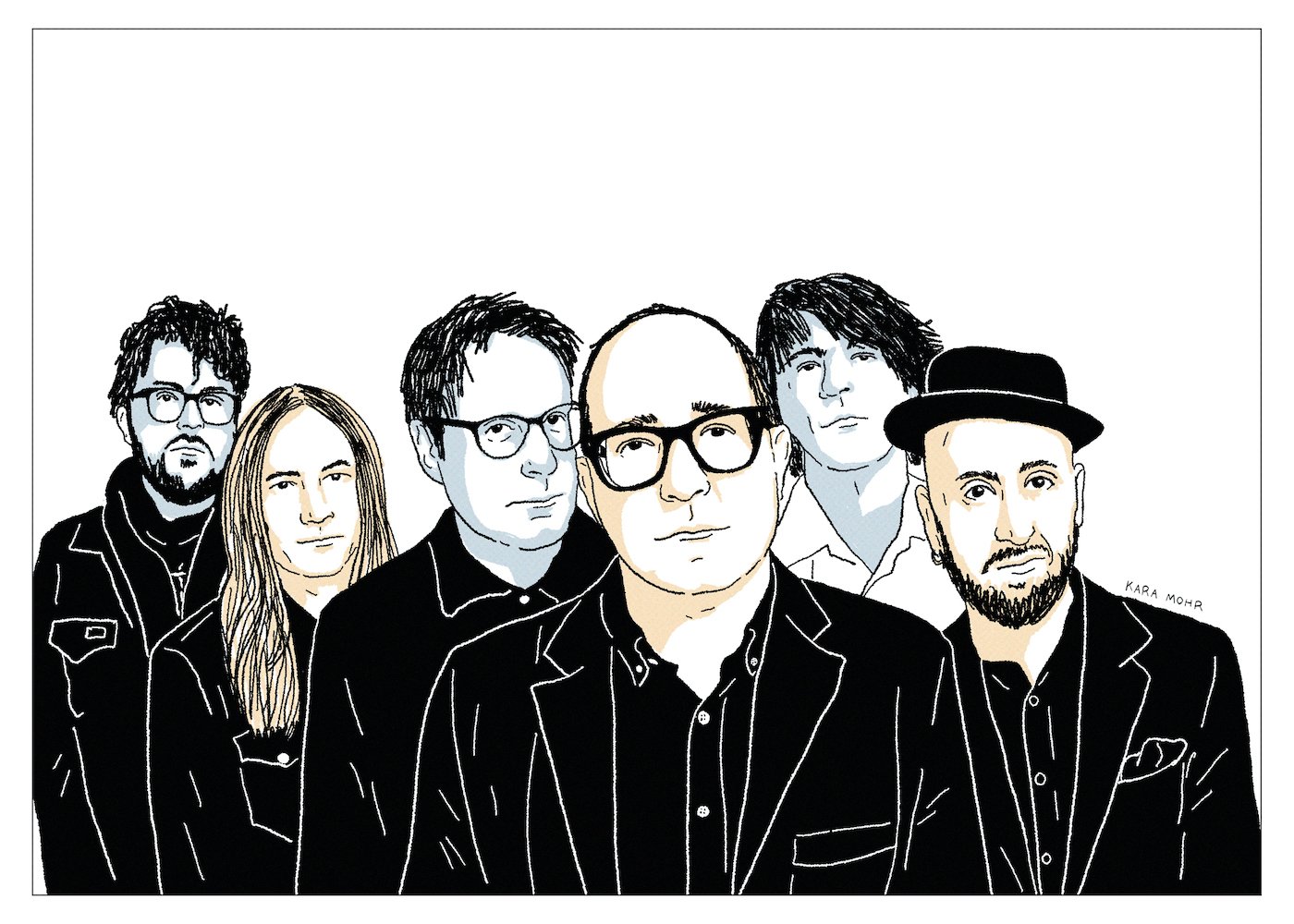
The Hold Steady “Thrashing Thru the Passion”
Of course we loved them. How could we not? After The Strokes and Interpol we needed something seriously less serious. We asked, and Saint Paul answered with The Hold Steady, a bar band that was also a bard band. Five guys who liked to drink and who sounded like Thin Lizzy covering The E. Street Band covering “Tangled Up in Blue,” but with Randy Newman on vocals. Three albums in, they represented everything that was great about Brooklyn. Three albums later, they seemed more like the downside of gentrification. Album number seven, however, which was released five years after their disappointing sixth, was a triumph — a recollection of where they had come from as well as an honest assessment of the price of progress.
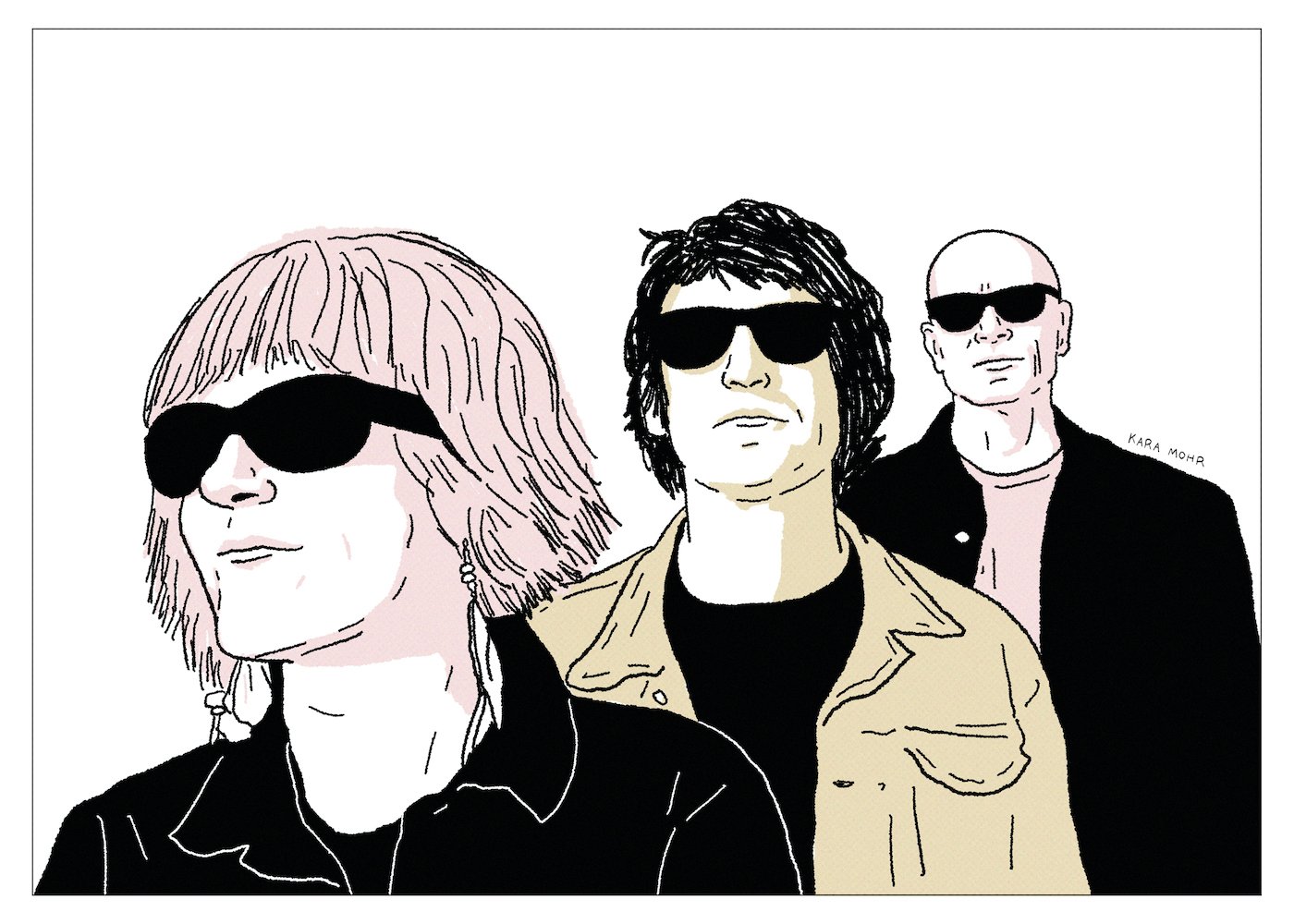
No. 2 “First Love”
Soon after the breakup of Heatmiser, Elliott Smith was an internationally renowned, critically adored singer-songwriter. But less than five years after his breakthrough — after he stood nervously on stage in a white suit, singing “Miss Misery” for some of the most famous people in the world — Elliott Smith was dead. By that point, his former bandmate and college buddy, Neil Gust, had moved from Portland to New York City, where he gave up his rock and roll ghosts and let the bruises of Heatmiser fade. Gust traded in his band for a three person domestic partnership, and traded in his guitar for a video editing suite. The man who was once Elliott Smith’s closest friend and who was, for a time, also considered his songwriting equal, became a successful commercial video editor. But nearly twenty years after his last record, when he was fifty years old, Neil Gust returned to Portland and started making new music again.
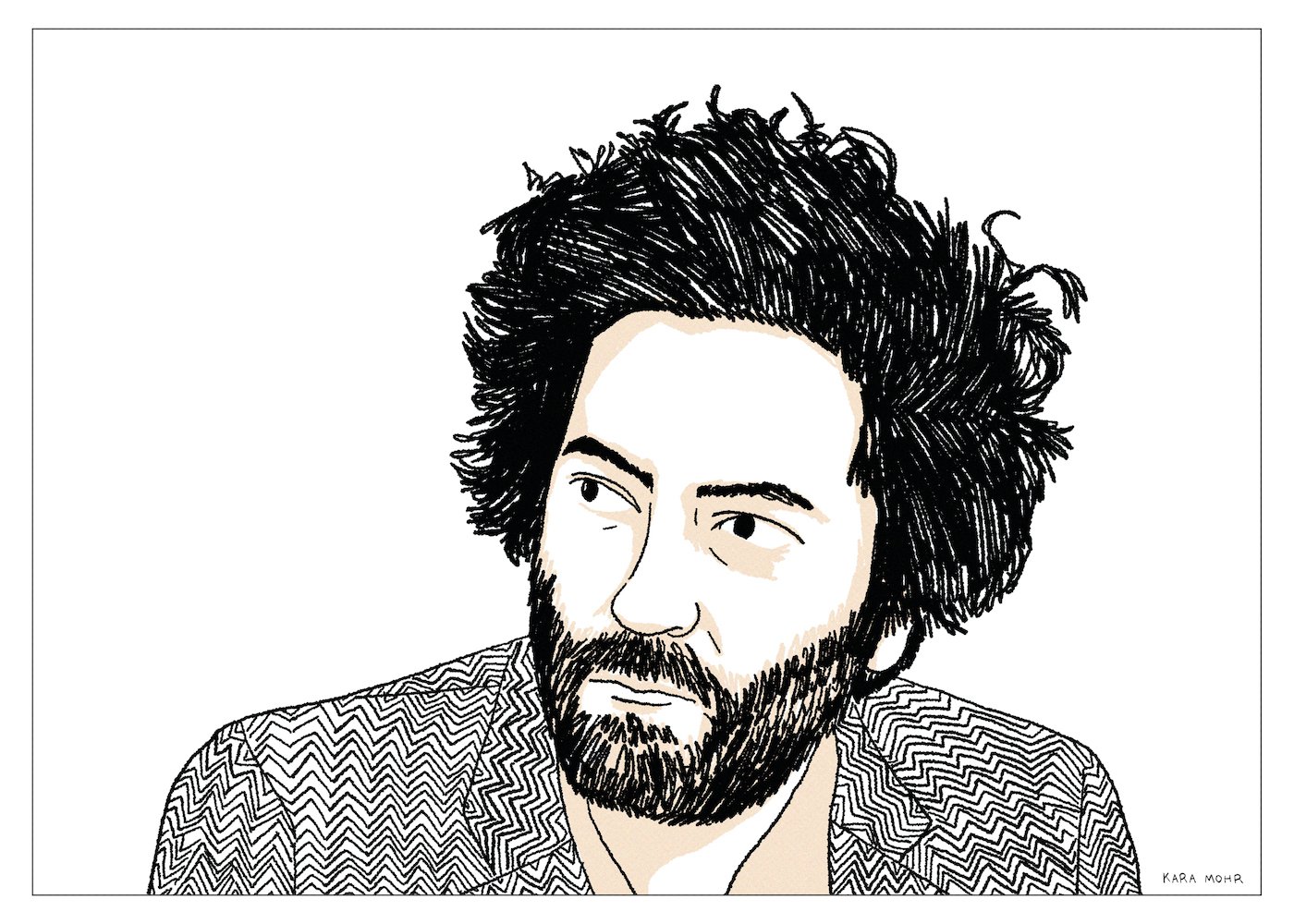
Destroyer “Have We Met”
Destroyer’s ninth studio album, “Kaputt,” was the rare album that succeeded poolside at boutique hotels as much as it did inside Urban Outfitters as much as it did at grad school cocktail parties. In the career of Dan Bejar, and in spite of everything he had accomplished before — with Destroyer and with The New Pornograohers — there was “before Kaputt” and “after Kaputt.” After “Kaputt,” a lot changed. Bejar got semi-famous. His clothes got fancier. His hair got bigger — and slightly grayer. Strangers wanted to talk to him. People wanted to hear what he had to say. And, moreover, what he meant. Was he really a master making masterpieces or was it all just artfully arranged, magnetic poetry from the most interesting man in North America?
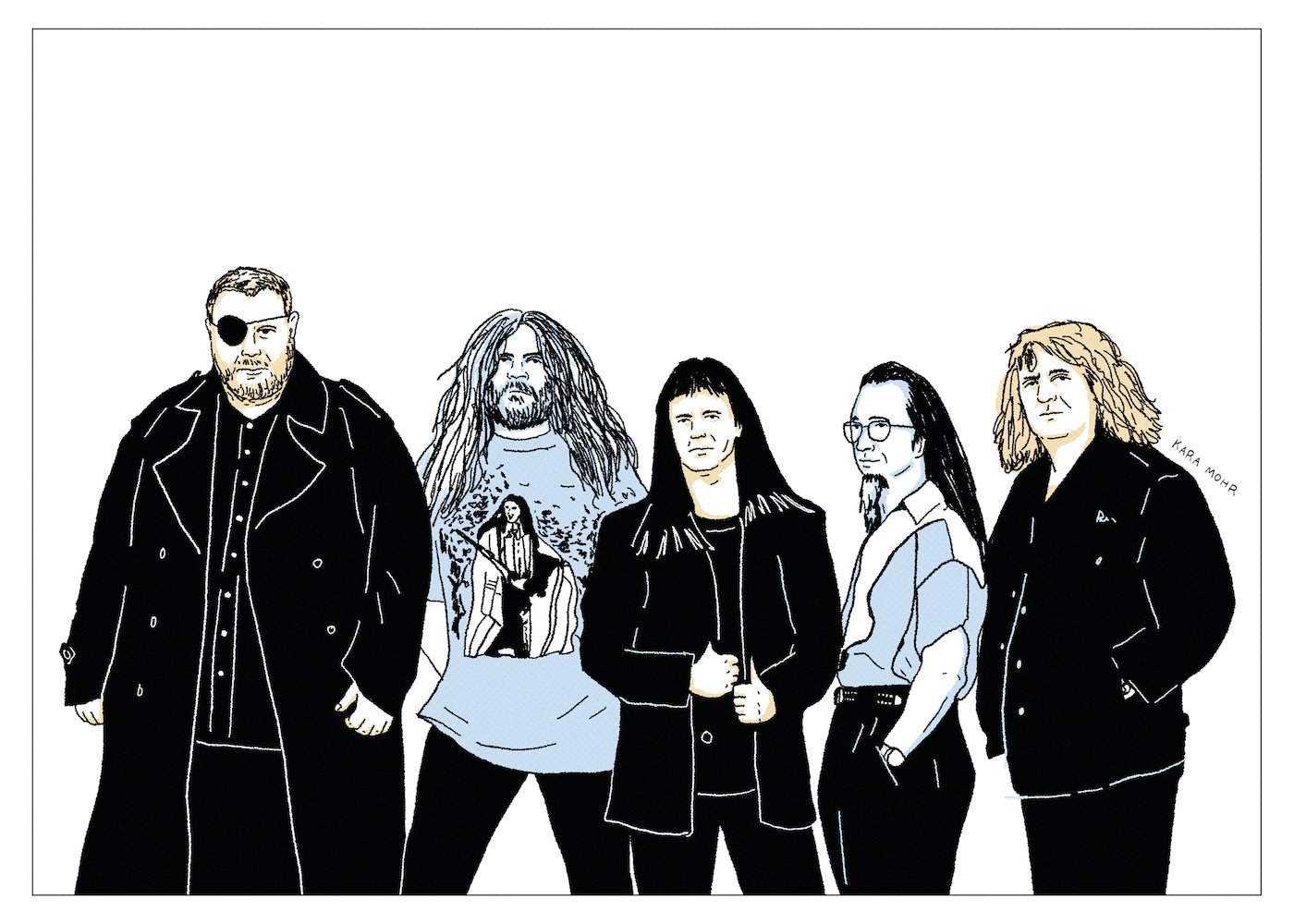
Kansas “Somewhere to Elsewhere”
Three decades in, when “Dust in the Wind” was exactly that, Kansas was floundering mightily. Next to Styx and Journey, they almost made sense. But after Michael and Prince and GnR and Nirvana — Kansas seemed like the greatest accident in the Classic Rock canon. A legendary Arena Rock band that was actually a Prog Rock band and who were famous but also completely unknown. Many years removed from superstardom, they would never be cool again, but also, they were never cool to begin with. They would never have another smash hit, but they had two more than nearly every other band in the history of history. They dropped from a major label to a very niche indie who specialized in Prog and Metal, which meant smaller budgets but also a bigger slice of the pie. And so, by the dawn of the new millennium, Kansas existed somewhere between total liberation and complete decimation.
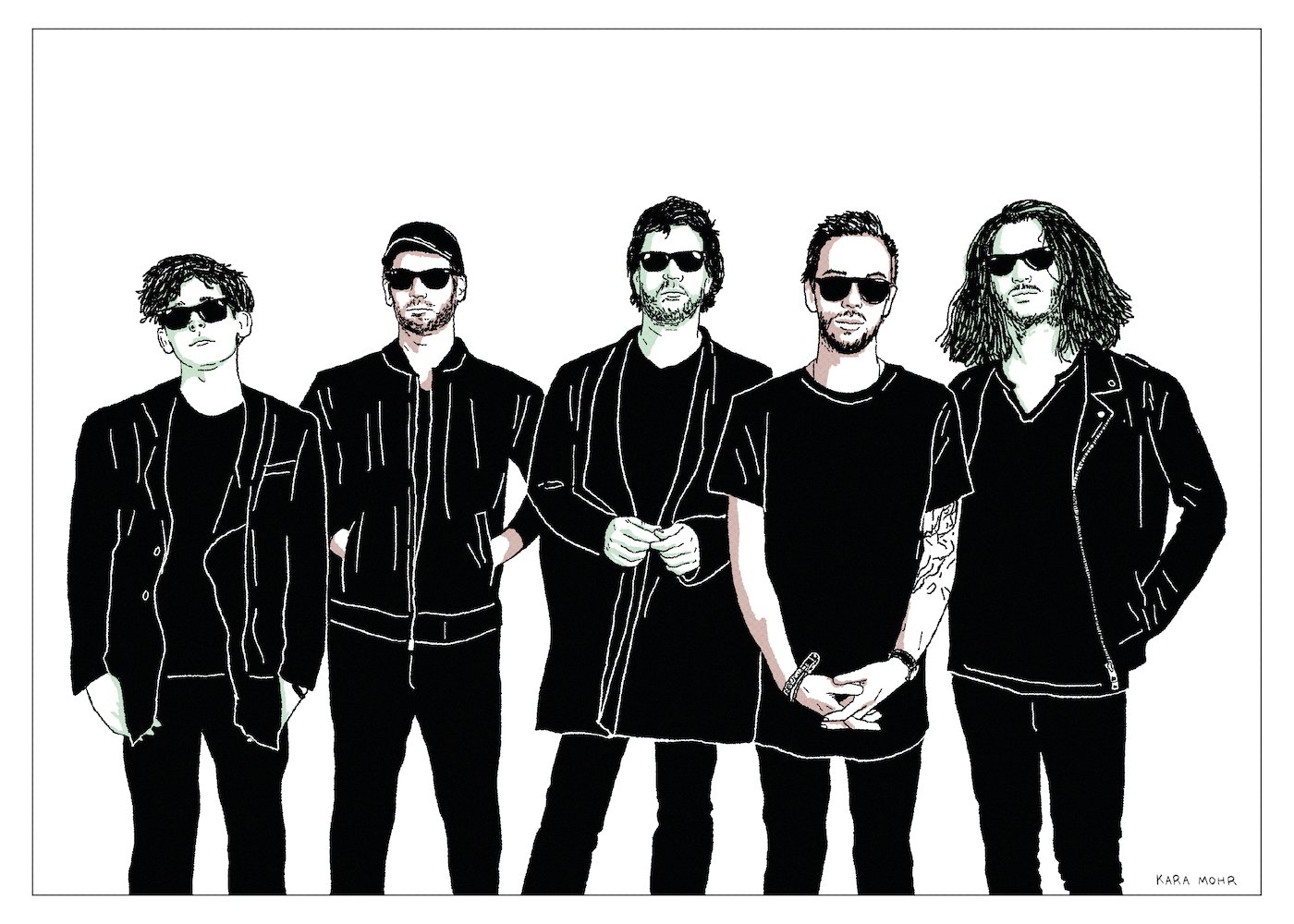
Third Eye Blind “Dopamine”
In his “60 Songs That Explain The 90s” podcast, right after the Sinéad O'Connor episode but before the Pavement one, Rob Harvilla tries to unpack the maddening, intoxicating mystery of “Semi-Charmed Life.” During the back half of the show, Harvilla is joined by Max Collins of Eve 6, and together the duo pierces the veil of Stephan Jenkins — Collins’ former tour-mate and nemesis. After some obligatory Jenkins-slagging the two conclude that, in spite of the singer’s limited vocal range, terrible pitch, decimated falsetto and borderline personality, “Semi-Charmed Life” works. In fact, it more than just works — it thrills. In fact, it thrills because of those defects. Through that lens, I began to reframe Jenkins not as a cad or a villain but as a fully realized talent. The Beatles were preternaturally gifted. The distance between their potential talent and actual talent was perhaps not so great. Jenkins, on the other hand, was a vain dick who could only barely sing, but who had a knack for making songs sound like hits and making narcissism sound universal. What if “I Wanna Hold Your Hand” wasn’t the miracle? What if “Semi-Charmed Life” was?
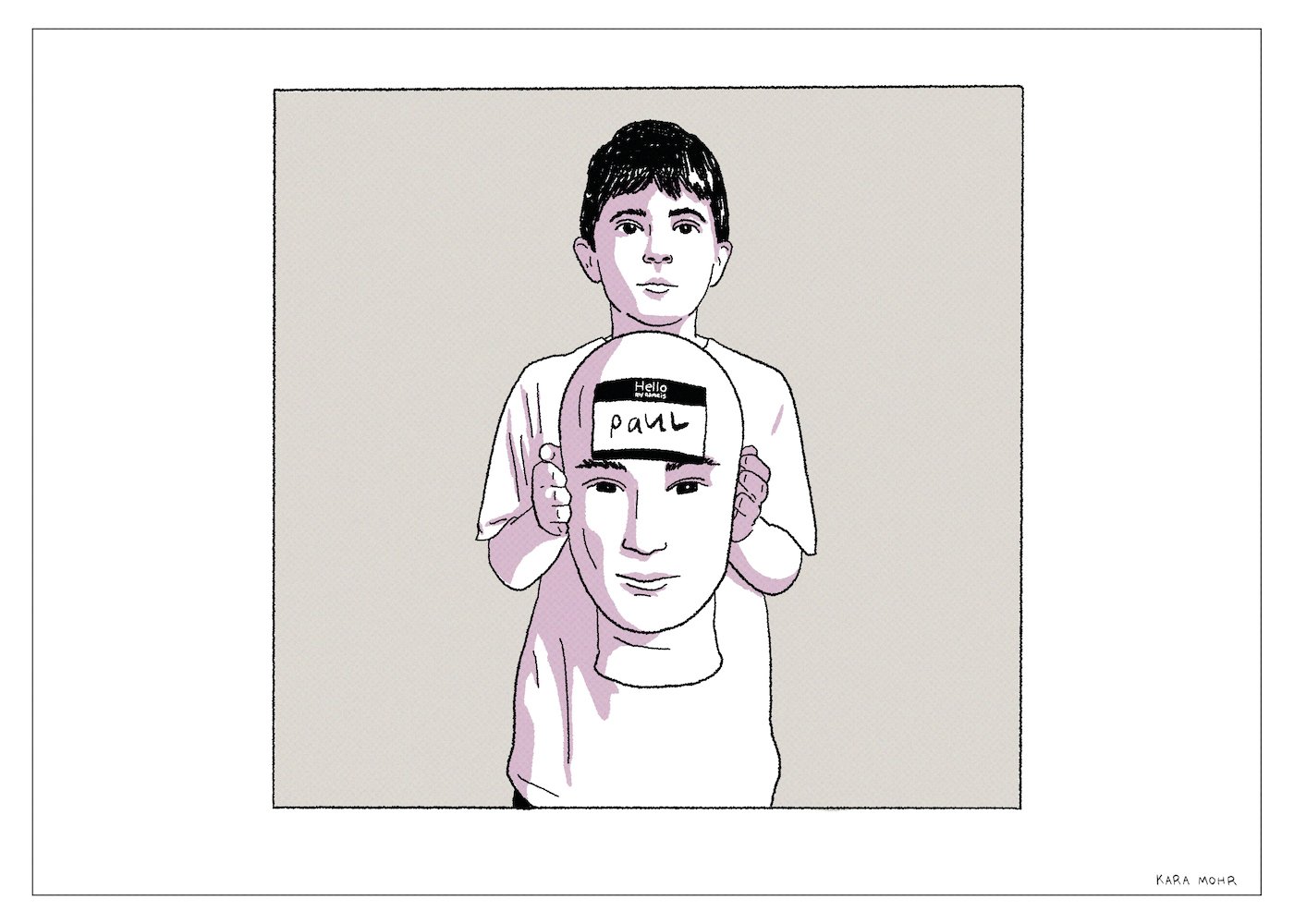
The National “The Album Covers”
As a general rule, masterpieces rarely have awful covers. Inversely, bands simply do not produce masterful album covers when their music is stagnating. For instance, The Stones’ covers get real spotty after “Emotional Rescue.” “Steel Wheels,” in particular, is an embarrassment. Somehow, Van Morrison’s septuagenarian covers are even worse than The Stones — much worse. “Latest Record Project” is a craven insult to the form. But Van and The Stones are not outliers — they’re the norm. Years after their commercial peaks, when they have little to gain and so much to lose, cover art is almost always the first thing to go. The National, however, are the exception to the rule. With each new album, their cover art and design continues to dazzle in ways that betray the depression of their songs and the uncertainty of their albums.
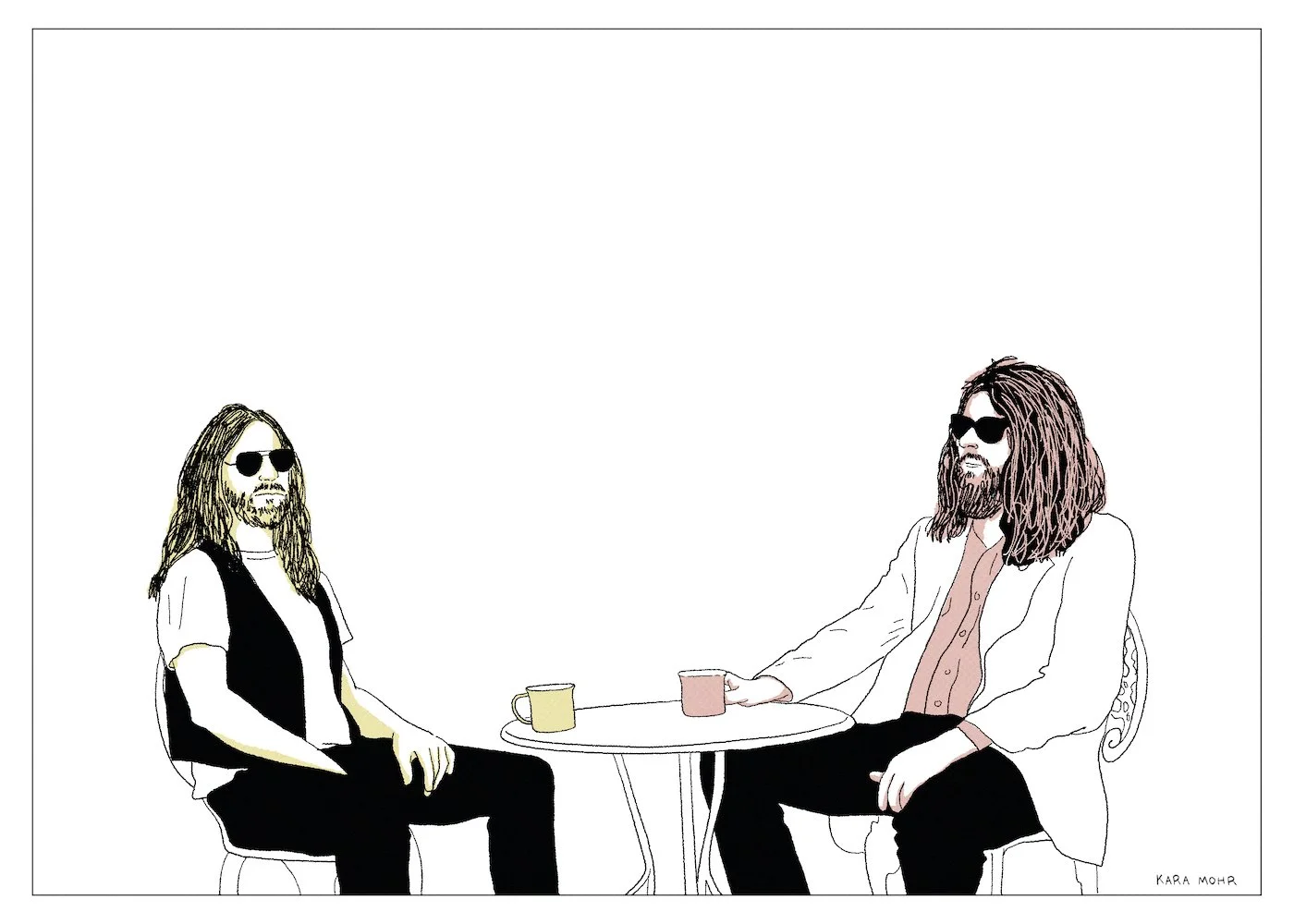
Black Mountain “IV”
Ten years, three studio albums and a half dozen side projects after their Pitchfork-feted debut, Black Mountain returned with “IV.” From its Hipgnosis-inspired cover, which screams Floyd and Hawkwind, to its bank of synthesizers, borrowed from Rick Wakeman and Keith Emerson, “IV” is a total flex. It’s an epic album, daring and ridiculous enough to take its name from one of the most famous albums in the history of Rock and Roll. Black Mountain’s “IV” is obviously not Led Zeppelin’s “IV.” In fact, it’s their least bluesy, least metal, most spacey and most proggy album. A more accurate title might actually be “Light Side of the Moon.” The titanic riffs are still very much there, but they are not the thing. The synthesizers are sometimes the thing, but also not the thing. The thing that distinguishes “IV” from straight homage is the thing that has always separated Black Mountain from everyone else — the sound of Amber Webber’s voice paired with Stephen McBean’s. The sound of verdant soil and deep roots next to burnt twigs and leaves.
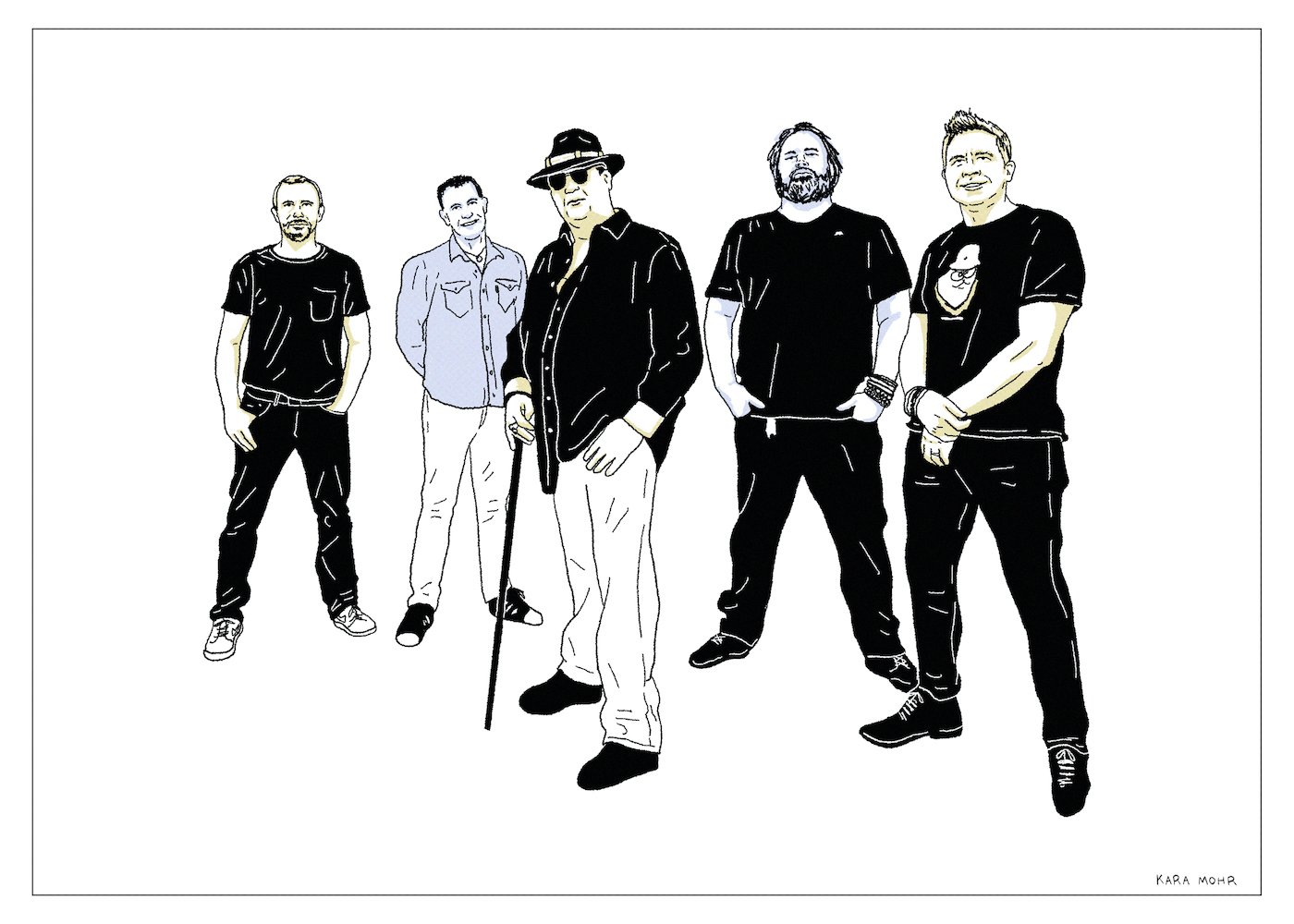
Blues Traveler “North Hollywood Shootout”
On so many levels, our aversion to Blues Traveler is ridiculous. Of all those Nineties Jam bands, why them? There were many lesser variations. Bands who couldn’t play with singers who couldn’t sing and jams that went nowhere. Blues Traveler was barely any of those things. They were a solid Roots Rock band with a mascot for a lead singer; far more exciting than their closest predecessor — Spin Doctors — and their more successful, distant cousin — Hootie and the Blowfish. If anything, their brief apex was a fluke — a product of commercial radio’s (and MTV’s) inability to separate Beck from Better than Ezra. For one strange moment in 1994, Modern Rock, Mainstream Rock, Pop and Adult Alternative formats all sounded oddly similar — jangly and towing a line between earnest and ironic. Basically, like the sound of Blues Traveler. On the other hand, reducing them to a bad haircut, does a grave injustice to the band. It also obscures the harmonica in the room — the dozens and dozens of harmonicas in the room.
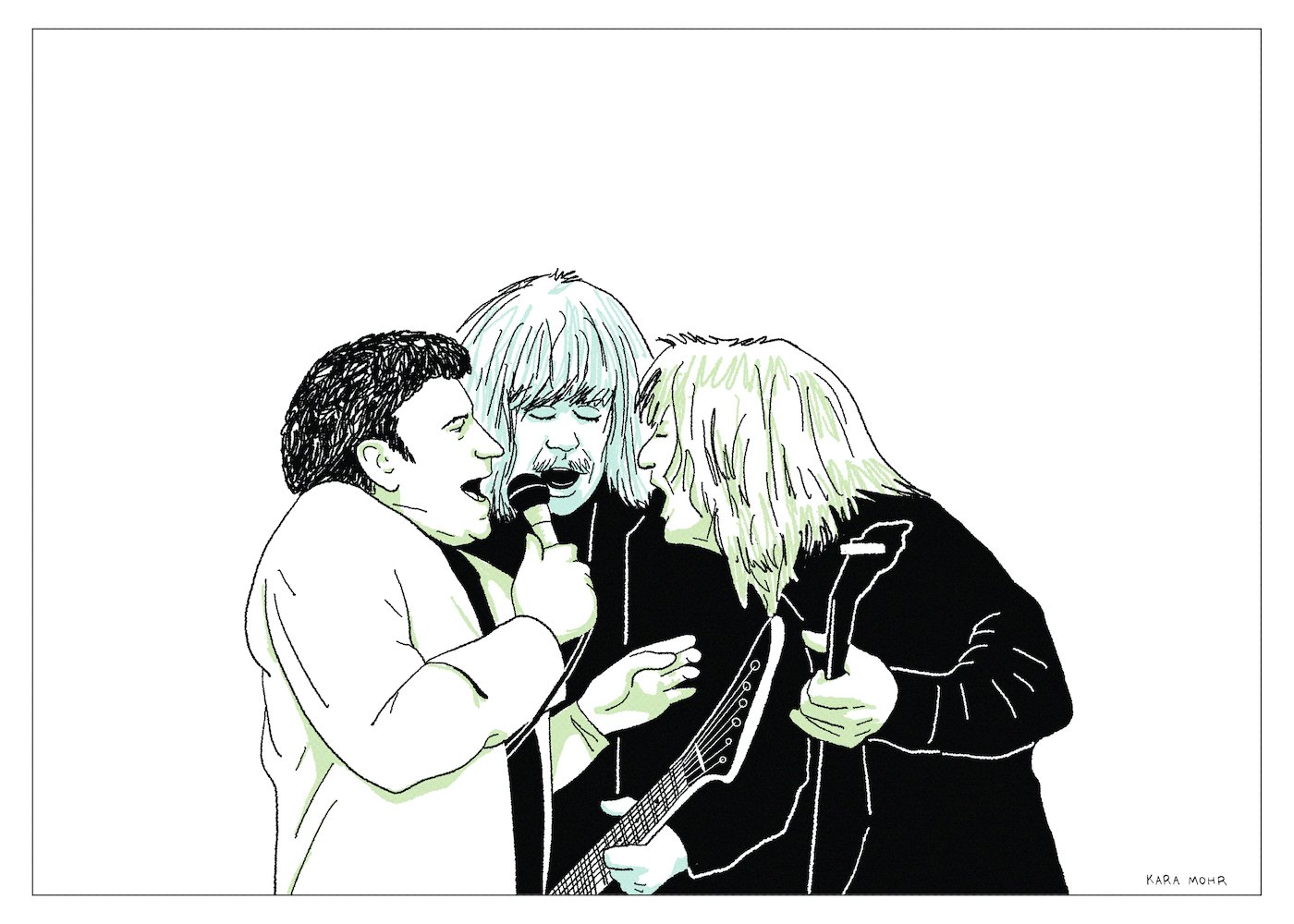
Styx “Brave New World”
Like Queen, with whom they’ve often been compared, Styx has always been the kind of band that swings for the fences. Most of the time they whiff — but in a charming “love the effort” sort of way. When they connected, however, as they did roughly one time per album between 1973 and 1982, they hit it out of the park. Way out of the park. During that run, DeYoung, Shaw, Young and the Panozzo brothers scored a half dozen top ten hits and five consecutive platinum-selling albums. And yet it always seemed to me that the band was a mistake — that we already had Queen and Journey. That DeYoung should be wowing audiences on Broadway (which he eventually did) and that Shaw should be fronting a Hair Metal band (which he also eventually did). By the end of the Nineties, seventeen years removed from the dystopian, sci-fi hit that broke the bank and the band, Styx were still swinging, but no longer connecting.
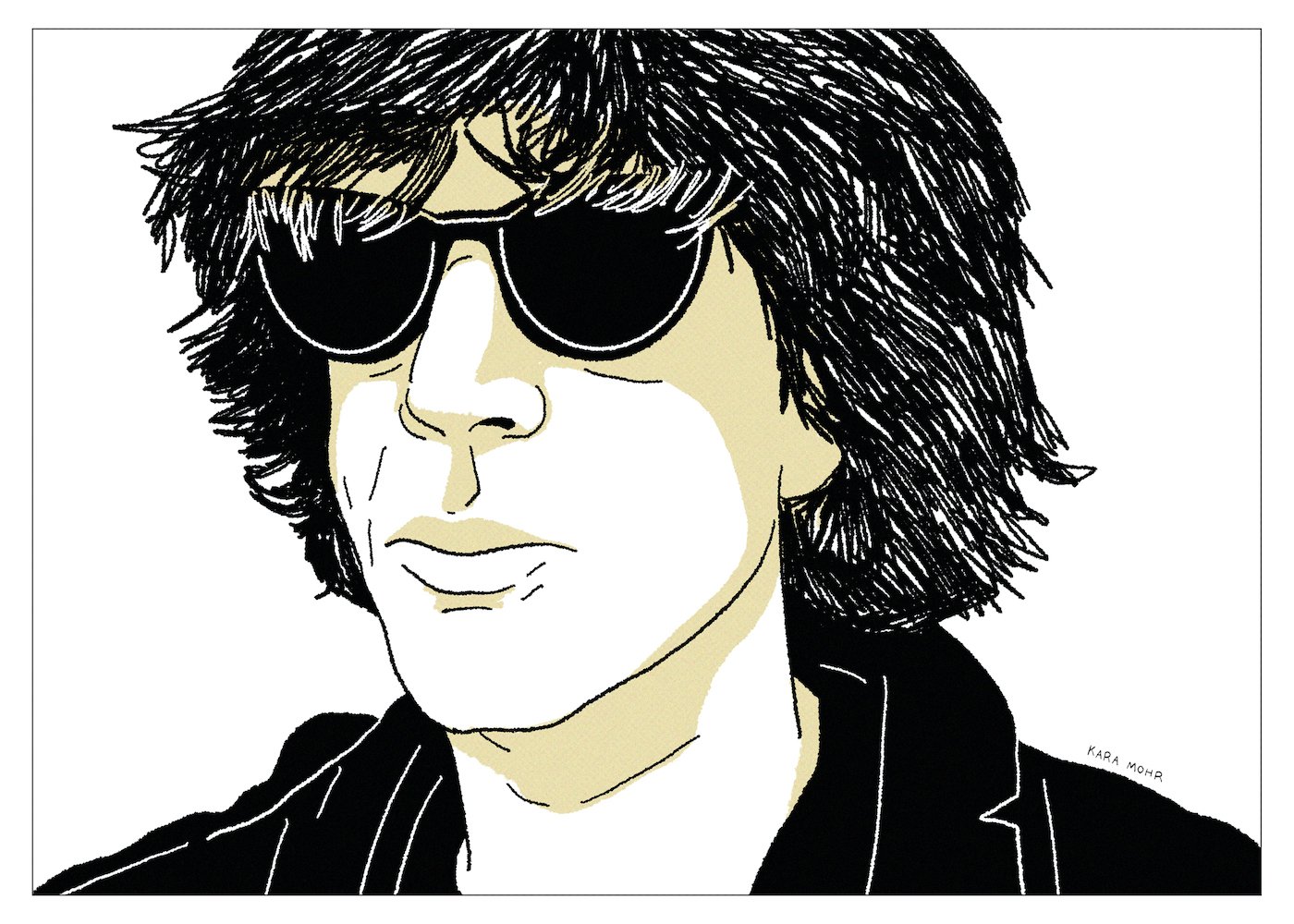
Dim Stars “Dim Stars”
Though it was released in 1991, “Dim Stars” sounds like New York City in 1988 — when Jon Spencer was fronting Pussy Galore and before Sonic Youth got a major label deal and when Avenue A was still sketchy and when everything stunk of imminent recession. Like all of those other things, you could call “Dim Stars” loose and offhanded, or you could call it sloppy. You could call it artful or avant garde, or you could say that it sounds like shit. But in fact, it really sounds like four different things. One, like Sonic Youth with Richard Hell splitting the difference between Thurston and Kim. Two, like a poorly made sequel to “Destiny Street.” Three, like an overqualified Scuzz Rock band that had not yet found its groove. And, finally, like a post-structuralist hipster cover band.
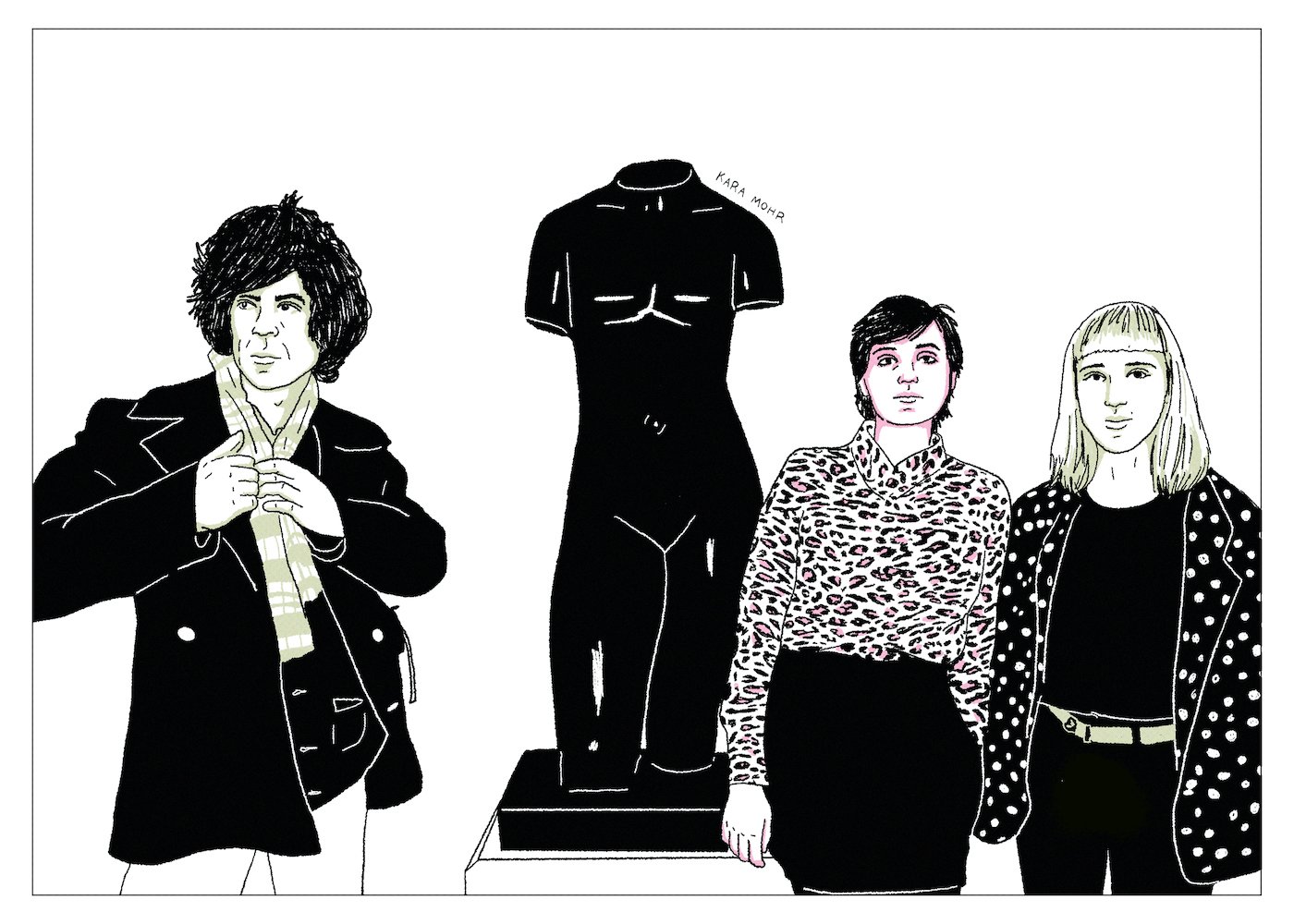
Chain and The Gang “In Cool Blood”
Like Nation of Ulysses before them, The Make-Up were more legendary than popular. And so, just five years after they first appeared, the most stylish, most ideological band on the planet was dissolved. In the Aughts, Ian Svenonius (along with Michelle Mae and Neil Hagerty) formed Weird War, but because socialism might be bad for business, the singer spent most of that Aughts moonlighting as a subject slash contributor for Index Magazine — and anyone else who wanted his ideas and his hair for their pages. By 2009, he was more an essayist, a great interview, a great photoshoot, and a hipster cad than he was a rock and roller. He was to Vice what Fran Lebowitz was to Vanity Fair. Until one day — when he’d either run out of ideas or when he had too many out of them — Svenonius started another new band. Chain and the Gang started as a lower stakes, rotating cast of friends and acolytes, sponsored by Calvin Johnson. By then, fans (and critics) were familiar with Svenonius’ Post-Structuralist, Marxist provocateur shtick. What they were less familiar with was his winking, hip-shaking good times.
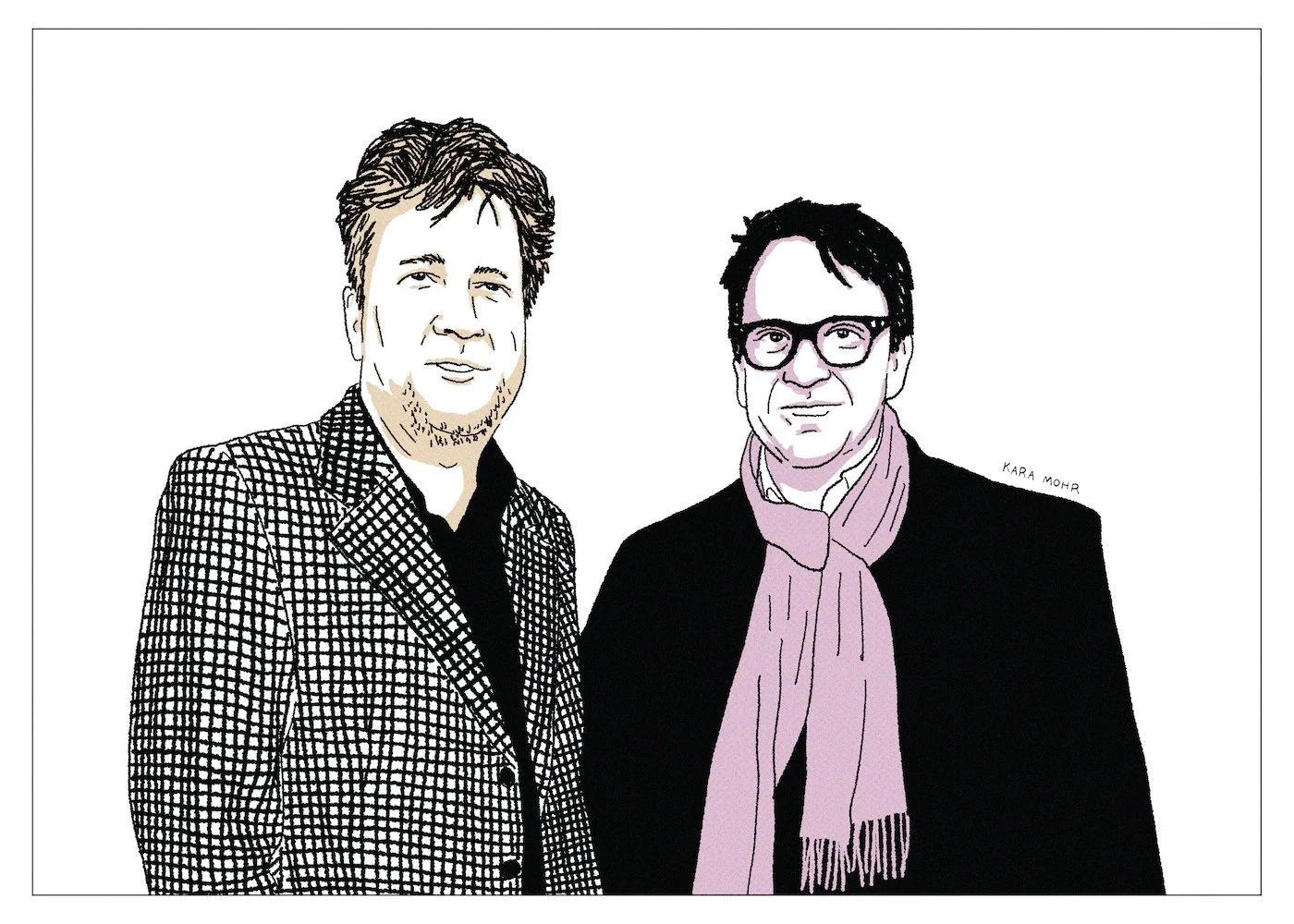
Squeeze “Cradle to the Grave”
Though early on they were compared to Lennon and McCartney, Glenn Tilbrook and Chris Difford were much closer to Elton John and Bernie Taupin. Tilbrook was a master tunesmith and Difford was an equally gifted wordsmith. For the most part, however, (and unlike Lennon/McCartney) they worked separately, fitting and refitting their own parts to the others’ material. Tilbrook, the more gregarious and intuitive one — he leaned towards the Beatles. Difford, more contained and cerebra, leaned towards Post-Punk. One man was blonde. The other brunette. They were childhood classmates, but, from the outset, and in spite of their shared interests, they were also a study in contrasts. During Squeeze’s first break-up, the two men actually made an album together, under their own names. After the second divorce, however, things got ugly. Jools Holland was gone, the hits dried up and Difford bottomed out. From the outside, it seemed certain that Squeeze was done. From the inside, it appeared even worse.
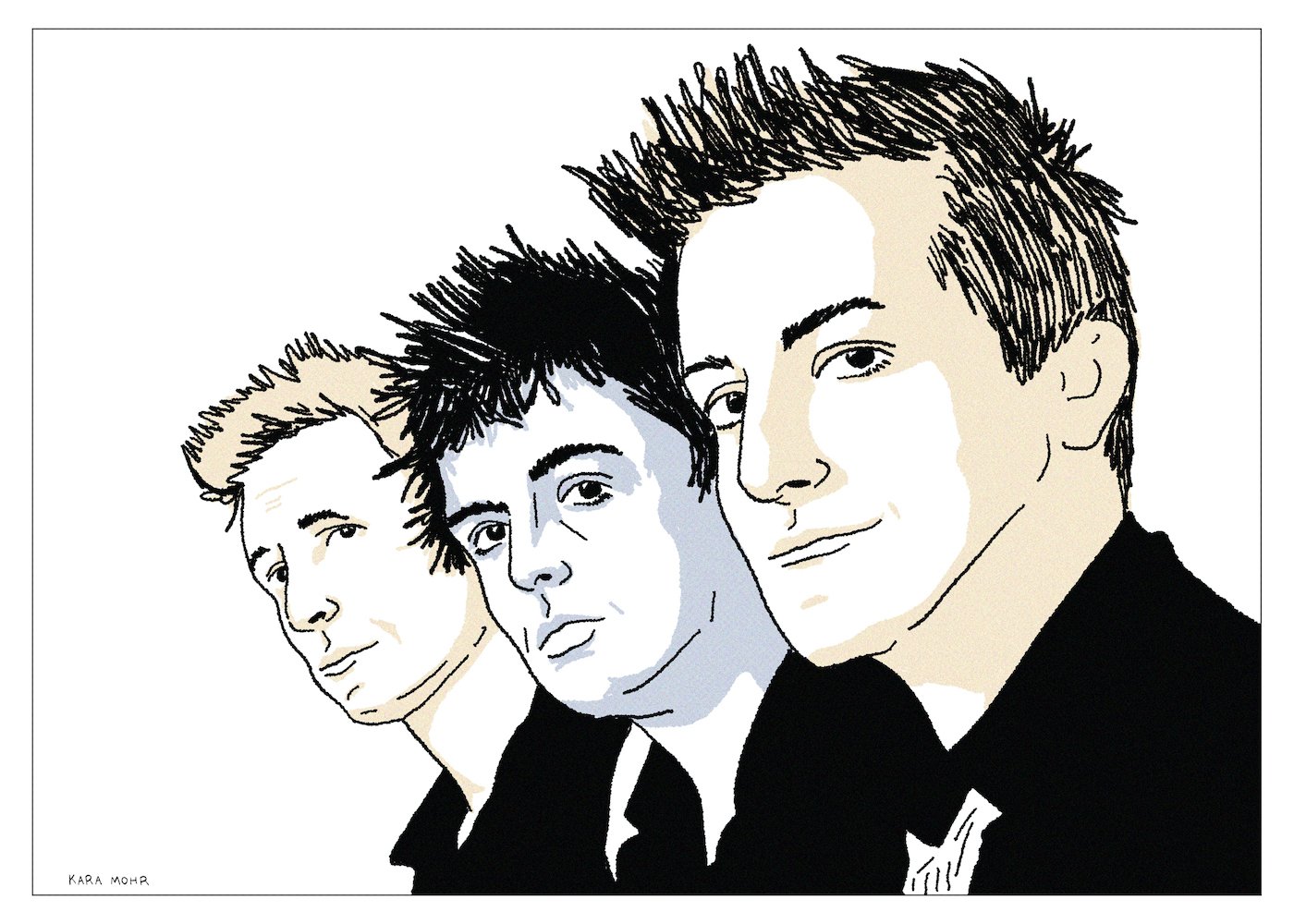
Green Day “Revolution Radio”
Twenty-two years after they first broke out with “Longview,” twelve years after they were the biggest Rock band in the world, eleven years after they inadvertently bankrupted Lookout! Records and four years after Billy Joe melted down onstage, Green Day was, once again, a band with uncertain prospects. And yet, their twelfth studio album was not a sharp turn or a step back or a leap forward. “Revolution Radio” was more a shoring up of lost ground — more like downside protection. All three members of the band were well into their forties by the time of the record’s release, meaning that the snotty charms of their youth would not play the same. Self-loathing and fuck you's present much differently in middle-aged millionaires than they do in twenty year olds. And so, in the year that Donald Trump was elected President and at a time when album sales were usurped by track steams, Green Day was in the unenviable position of having to question both their form and their function.
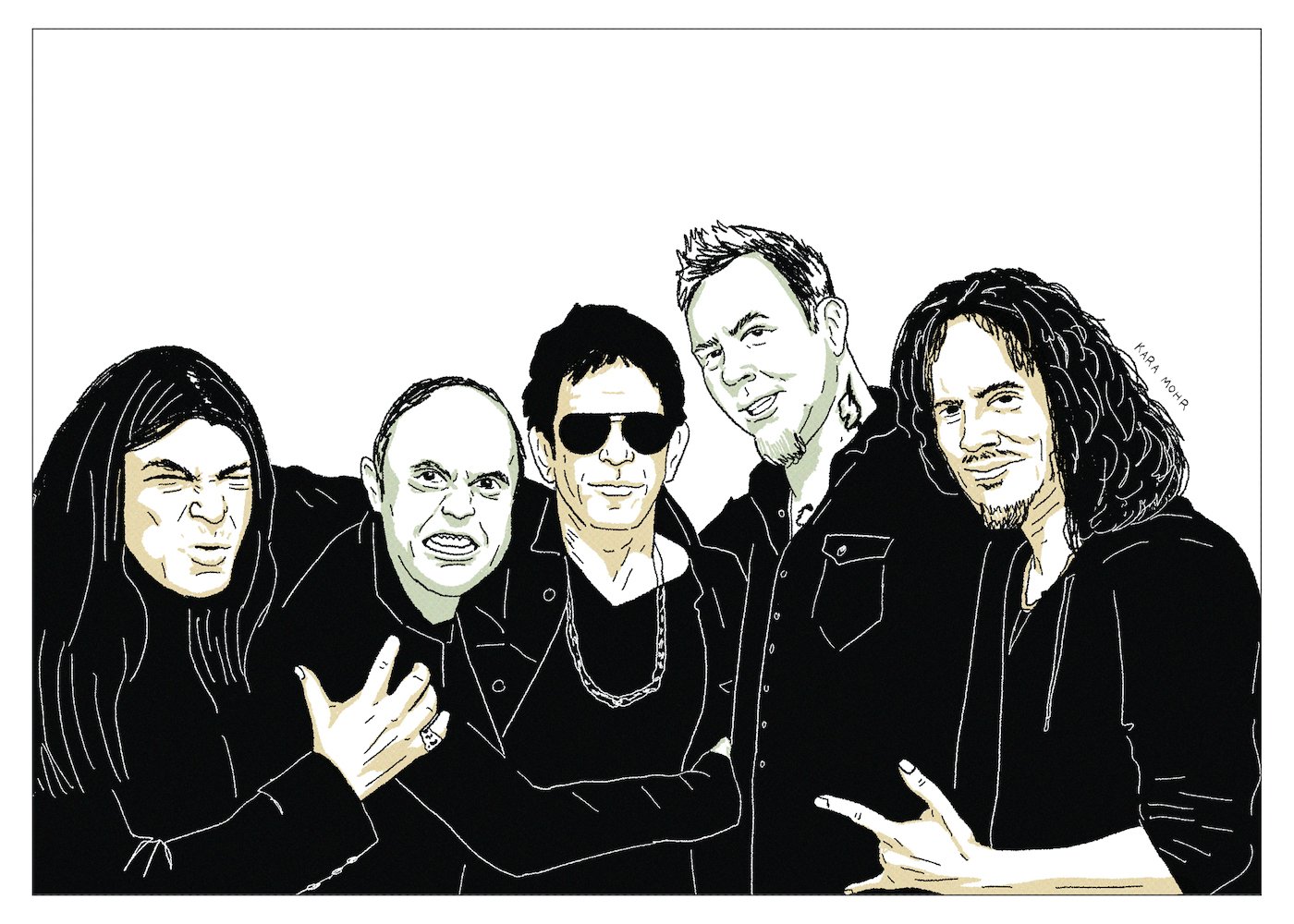
Lou Reed and Metallica “Lulu”
Given how few people have actually heard the album, and how few of those people are interested in anything beyond the stars involved, the volume of “Lulu studies” is staggering. But the divergence of the various theses is so bold as to suggest that either (a) people are listening to different albums or (b) nobody knows anything. There is, of course, overlap in the various perspectives — but less than I would have assumed. Many simply believe that “Lulu” is a historic failure — a bloated pretentious hour and a half of noise and nonsense. There are others who view it as an act of artistic bravery from two legendary artists, committed to a vision and unconcerned with failure. And, finally, there are those who believe that “Lulu” is misunderstood. Nowhere among the three points of view, however, can you find a faction who boldly proclaims: “Lulu is awesome.”
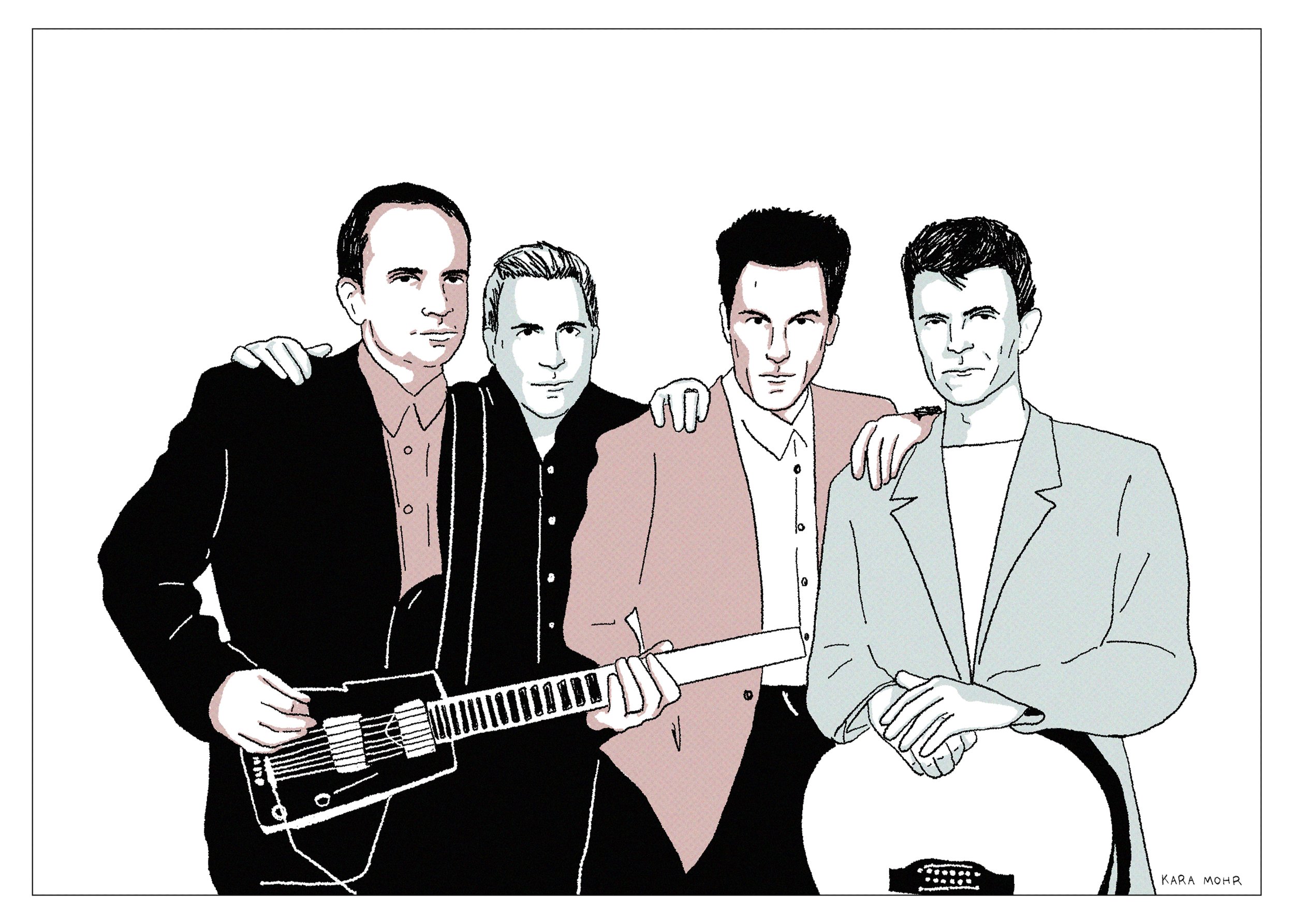
Tin Machine “Tin Machine II”
By the late Eighties, there were no fresh blood for David Bowie — the greatest vampire in Rock and Roll — to suck. The top Rock radio songs of 1988 included Henry Lee Summer’s “I Wish I Had a Girl” (what? who?), Bruce Hornsby and the Range’s “Valley Road” (rocks so light) and Tommy Conwell & The Young Rumblers’ “I’m Not Your Man” (not a typo, I checked). After two consecutive duds, Bowie was desperate for inspiration, but the pickings were slim. And so, he did what desperate people do. He found the nearest available guy and went all in. No research. No courtship. He just needed a guy with a beating heart, pumping blood and some capacity to make music. But mostly, he someone who could be a willing host to a brilliant parasite. Reeves Gabrels was that new host. And, in spite of his regal sounding name, he was truly just a guy — a guy from Staten Island, New York, who happened to be married to David Bowie’s tour publicist. One day, Gabrels was playing steel guitar in Rhode Island for a band called Rubber Rodeo. A year later, he was the cofounder of Tin Machine.
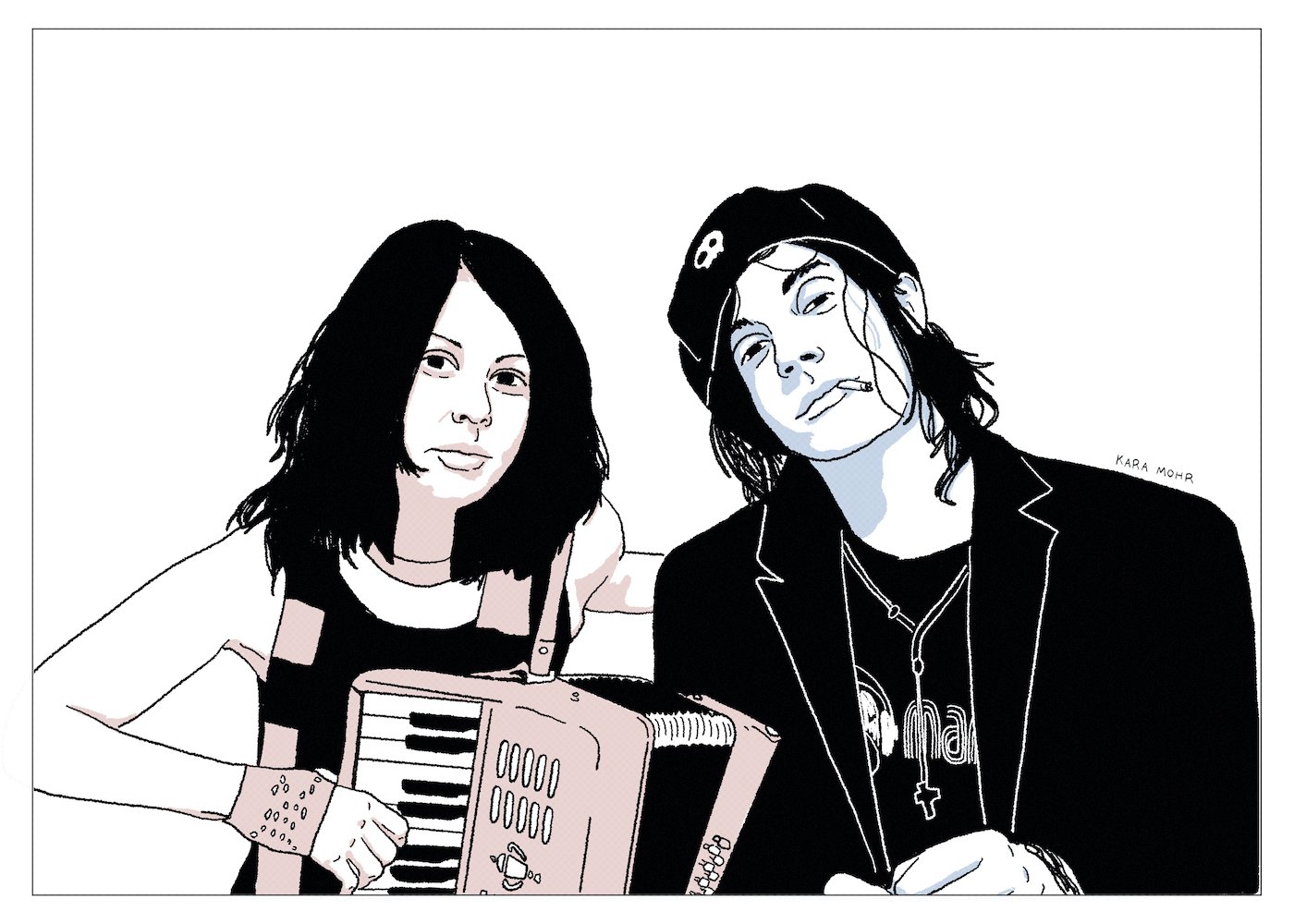
Marah “Marah Presents Mountain Minstrelsy of Pennsylvania”
The first wave of Dad Rock is canon — Dylan, The Band, Petty, The Boss. Occasionally, it veers into Indie or Alternative Rock (REM, The Replacements) or headier stuff (The Dead, Steely Dan). But, broadly speaking, it’s American Roots Rock for educated men who are older than thirty but younger than sixty, who are likely to drink craft beers and who desperately want their children to understand the glory of “Jungleland.” The second wave of Dad Rock is still a work in progress. In the early Aughts, bands like The Hold Steady and Band of Horses and Arcade Fire began to make their cases. Some of the neo-Dad Rockers were cut from The Boss’ cloth (Gaslight Anthem, The Constantines) and others were perhaps closer to Dylan (Bon Iver, Sufjan Stevens). But the ones who should have been kings — the ones who got it all started but then got lost in the plot — were Marah.
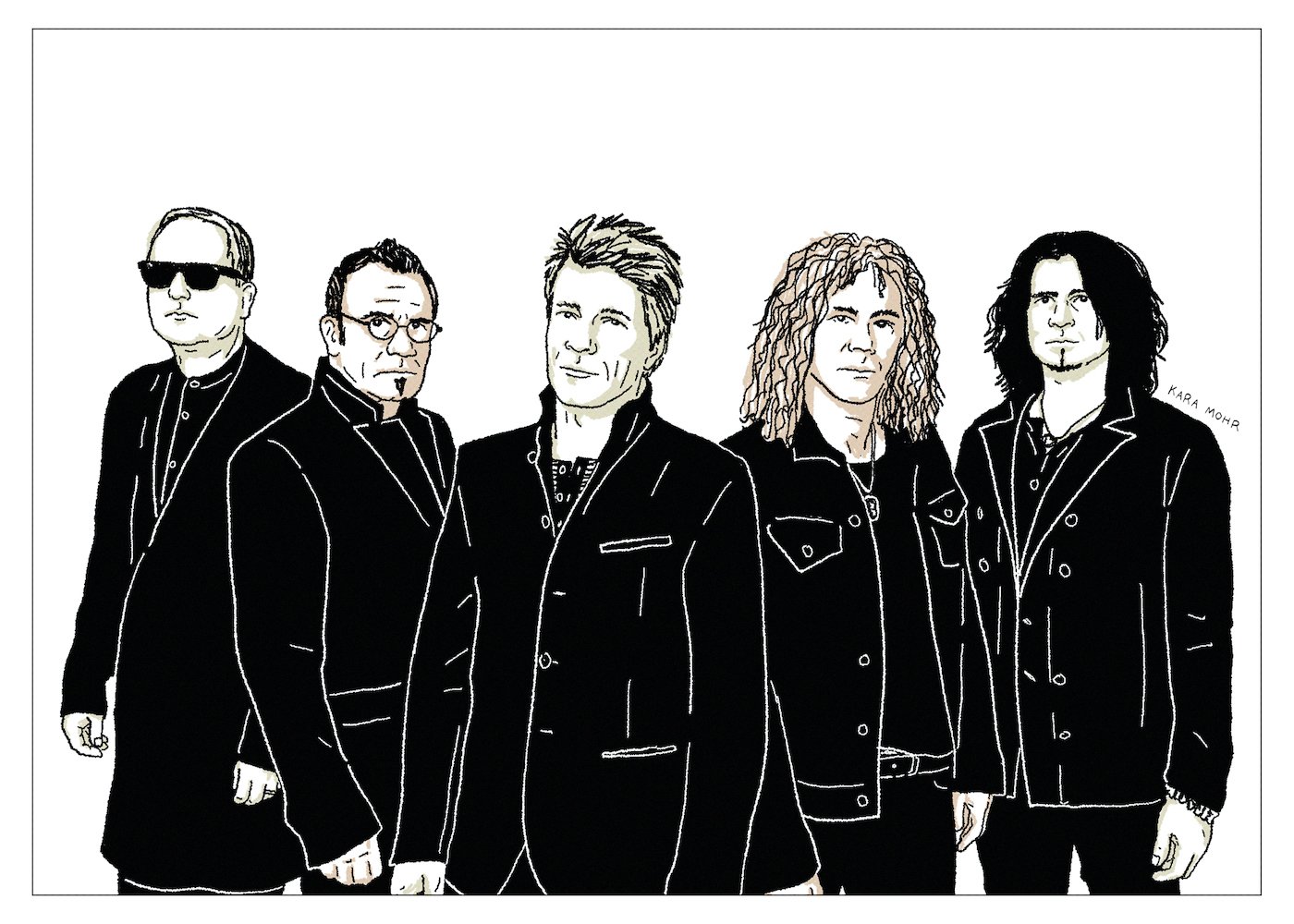
Bon Jovi “This House Is Not for Sale”
Though they were no longer America’s Biggest Rock Band, Bon Jovi could still sell (many) millions of albums. But it was clear to anyone who was paying attention that things had changed. Jon cut his hair and took up acting. Richie married Heather Locklear. Over the course of three decades, they’d traded in grit for nostalgia. Their fearlessness was subsumed by trite optimism. And though they’d sustained their spot on the charts, they’d regressed from something iconic to something more generic. By 2015, they had to confront the existential risk that all Arena Rock bands some day face: the challenge of being both universal and distinct. Many great bands had fallen into that chasm before: Journey, Foreigner and REO Speedwagon to name a few. But, not Bon Jovi. In just a few years, and without Richie Sambora, they went beyond arenas. Beyond namelessness and facelessness. They became the Bud Light of Rock and Roll — the highly consumable, mostly bland complement to Fox Sunday football.
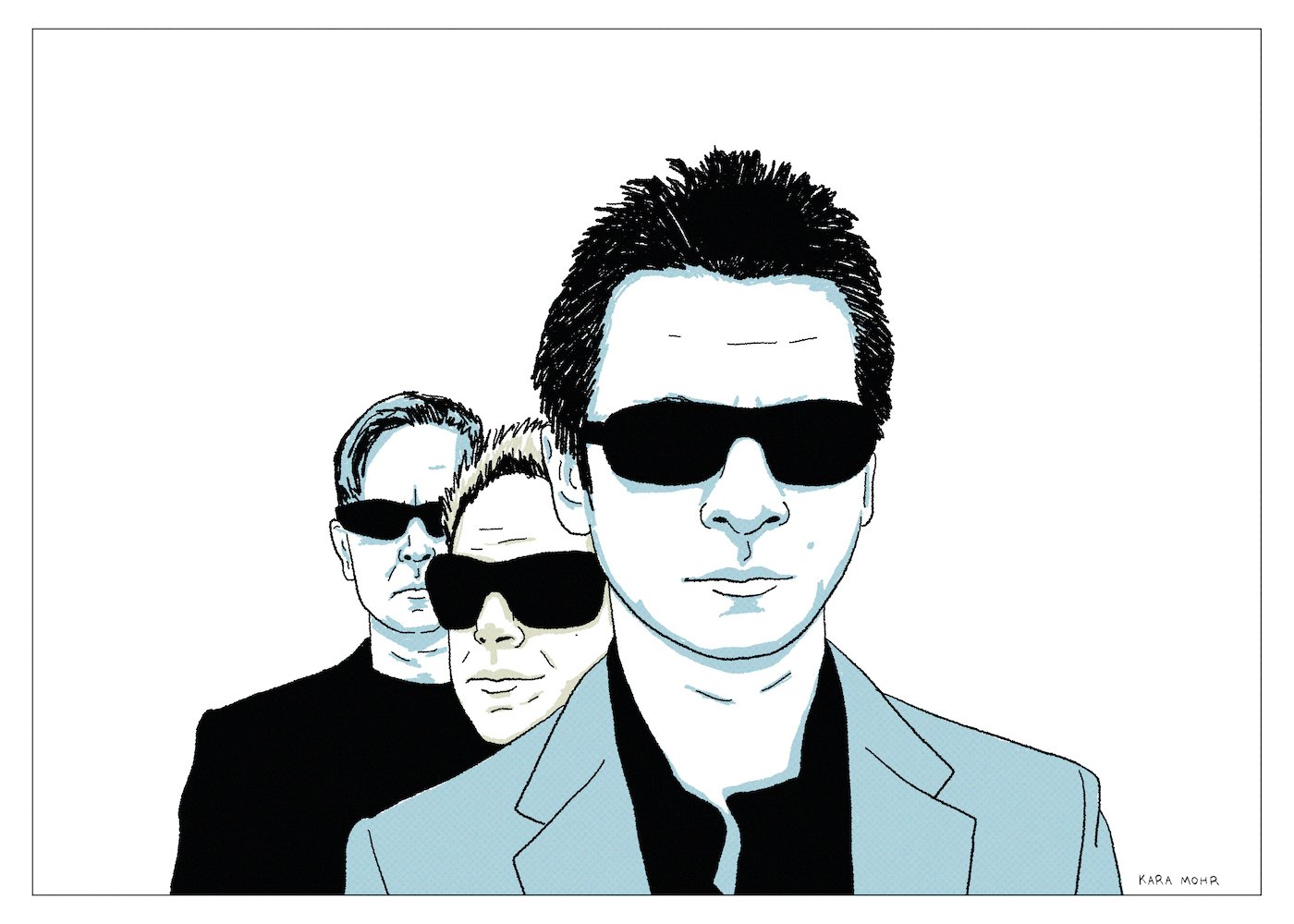
Depeche Mode “Playing the Angel”
By 1990, having graduated from new wave romantics to industrial futurists to “goth cowboy junkies,” Depeche Mode had inexplicably managed to conquer the world. And though they were churning — even rotting — on the inside, “Violator,” from that year, was inarguably their commercial and creative peak. It was also very nearly the death of the band. During the 90s, Gahan sunk deeper into heroin addiction, Gore was literally seized by alcoholism and Fletcher suffered crippling anxiety. The downward spiral continued until 2005, when Gahan, newly sober, and Gore, not sober and soon to be divorced, retreated with Fletcher to Gore’s home studio in Santa Barbara. The resulting album, “Playing the Angel,” was a deceleration and introversion following decades of the opposite. And while it was mostly a beloved album, it was not “peak Depeche Mode.” It’s a downing of the ante. It was also a minor miracle, recorded at the moment when the un-killable band suddenly seemed all too mortal.
